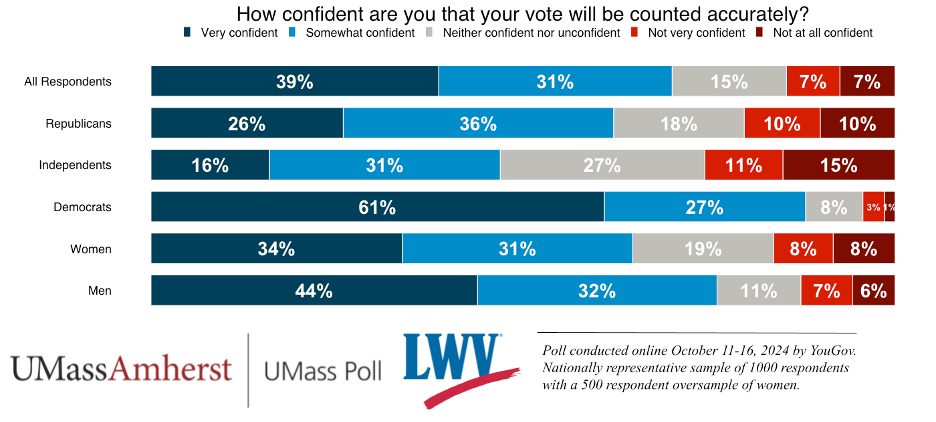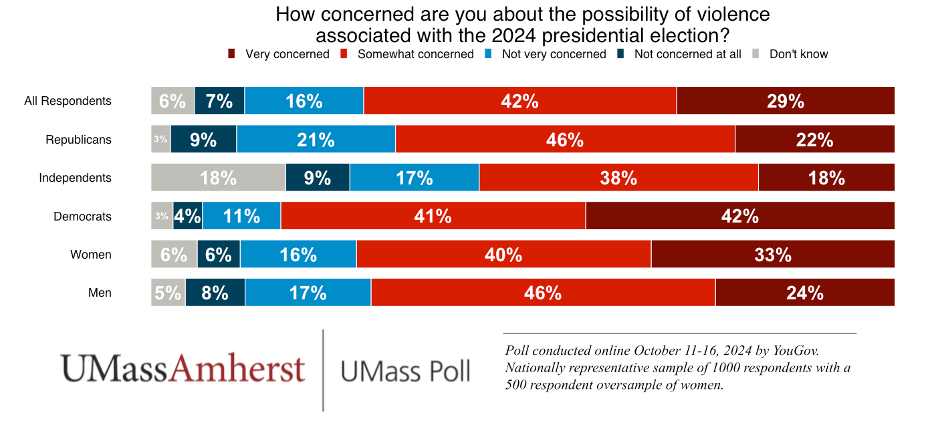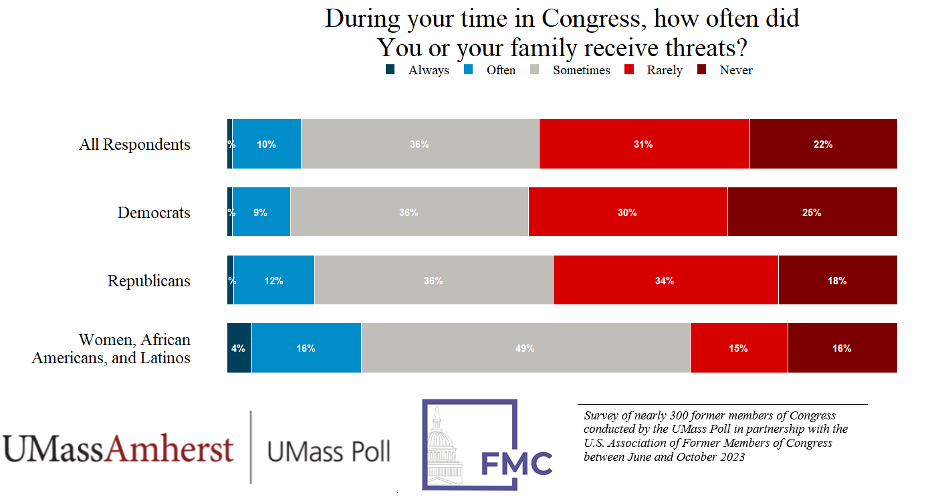As democracy advocates and concerned citizens resist the erosion of norms and institutions during a second Trump administration, we must remember that our democracy is already in a state of crisis! This crisis has seen our Freedom House rating drop more than 10 points in the last decade. According to this measure of political rights and civil liberties, our peers were once countries like France and Germany, but now we find ourselves ranked just below Argentina and Mongolia.
Mass Partisanship and Elite Power-Seeking: A Dangerous Combination
America’s crisis is borne of a dangerous interaction between mass-level partisan hyperpolarization, the cynical exploitation of it by some elites for personal or political advantage, and craven silence from many co-partisan leaders. Unlike previous divisions on civil rights, gender equity, and the Vietnam War, which split us along cleavages not consistently demarcated by party lines, today’s partisan polarization places our democracy directly in the path of political crossfire. This environment incentivizes party elites and stalwarts in the body politic to circumvent democracy—doing things like refusing to accept fair election results or even justifying political violence—when it serves their side’s pursuit of power.
In a UMass Amherst Poll, conducted in partnership with the League of Women Voters right before the 2024 election, just 26% of Republicans told us they were “very confident” that their vote would be counted accurately, and 72% expressed concern about fraud and abuse associated with the counting of ballots. This is deeply troubling given that our elections are the most secure they have ever been and levels of fraud and error are negligible. Trump’s lies about the 2020 election and his efforts to stay in power despite losing a free and fair election, including the January 6, 2021, attack on the US Capitol, have resulted in a deep-seated doubt of our country’s electoral process.

“When leaders in the Republican Party, elected officials now for four years, have refused to accept the 2020 election results, that then bleeds into your rank-and-file Republicans,” said Bill Gates, a Republican member of the board of supervisors in Arizona’s Maricopa County, in an interview with CNN. Both Democrats and Republicans take cues from their party’s leaders. Partisan voters may be inclined toward incredulity when their preferred candidate loses, but that doubt usually remains latent unless unleashed by political elites. Speculation about 2024 election fraud has been largely limited to the fringes because Democratic leaders have not reinforced them, thus depriving the inevitable conspiracy theories of the oxygen they need to spread. Leaders who do spread disinformation, or even tacitly endorse it through silence, are abrogating an important responsibility. They are failing us.
The Specter of Political Violence
Election lies and equivocation have also fostered a political climate over which the specter of threats and violence looms. Heading into 2024’s election day, 71% of Americans, including both Democrats and Republicans, expressed concern about election violence when responding to the UMass Amherst Poll. And these fears are warranted. The US Justice Department’s Election Threats Task Force, which was created in 2021 to address a rash of threats and intimidation against election officials, has received thousands of reports. The devoted public servants and citizens who administer our elections, from secretaries of state to workers at polling places, once did their vital work in relative obscurity. Now, they sign up with the knowledge that they and their families may face threats and intimidation.

Threats of violence impact public servants well beyond those involved in elections. In collaboration with the US Association of Former Members of Congress, the UMass Amherst Poll conducted a survey of nearly 300 former members of Congress. About half indicated they or their family received threats during their time in office, and the rates are higher for those who served most recently and considerably higher for women and people of color.

Even when we don’t see violence, the fact that threats have become such a regular feature of American politics shapes the behavior of everyone, from our elected officials to the people working at the polls. Republican Congressman Mike Gallagher, a staunch conservative who did not fully support Trump’s border policy or Trump’s claims that the 2020 election was stolen, cited threats and a swatting incident his family endured when he retired from Congress at the age 40. “I signed up for the death threats and the late-night swatting, but they did not,” Gallagher said.
Reinforcing Democratic Norms
Remarks from Kettering Senior Fellow and former FBI director James Comey at the foundation’s January 2024 Conversations with Democracy Innovators are especially chilling as we head into a second Trump administration and the promised pardon of those who attacked our Capitol four years ago:
We have always had a radioactive stew in the basement of America. . . . There is violence there in America’s basement. It’s just part of who we are, but we control it in two different ways. We control it by building a building of law around it that says, “you come out of these doors, we’re gonna lock your butt up.” But we also put control rods that are cultural down into the radioactive stew. And what’s been happening in this country over the last seven or eight years is the control rods are being withdrawn by people like Donald Trump and his enablers and radiation is banging around inside the building. The building of laws has done a real good job of containing it and sending a message. But it’s not enough. . . . We have to push the control rods back down in. It’s not OK to talk about violence. It’s not OK for one of our two parties, the Republicans, to be embracing the idea that January 6th was a heroic event. It’s not OK. They’re trying to pull the control rods out. We must push it deeper and deeper into the stew.
Trump’s reelection reminds us that this “building of laws” is not truly independent of the pro-democratic, anti-political-violence norms Comey calls cultural “control rods.” Those control rods, it turns out, are load bearing. And they have been weakened. As many Americans are led to believe that refusing to accept the results of an election and stoking partisan violence are either justified or not such a big deal, the entire structure’s integrity is compromised.
Trump and his enablers have opened a Pandora’s Box, unleashing upon American democracy a set of ills such as diminished confidence in our elections and the menace of partisan violence. But we must remember that the last thing left in Pandora’s Box was hope. Our hope must rest in a redoubling of efforts by regular citizens, honorable leaders from both political parties, and democracy-focused organizations like the Kettering Foundation to resist the erosion of democratic institutions and norms.
American Democracy Has Been Caught in the Partisan Crossfire was originally published by the Charles F. Kettering Foundation. Alexander Theodoridis is an associate professor of political science at the University of Massachusetts Amherst and codirector of the UMass Poll.




















Marco Rubio is the only adult left in the room